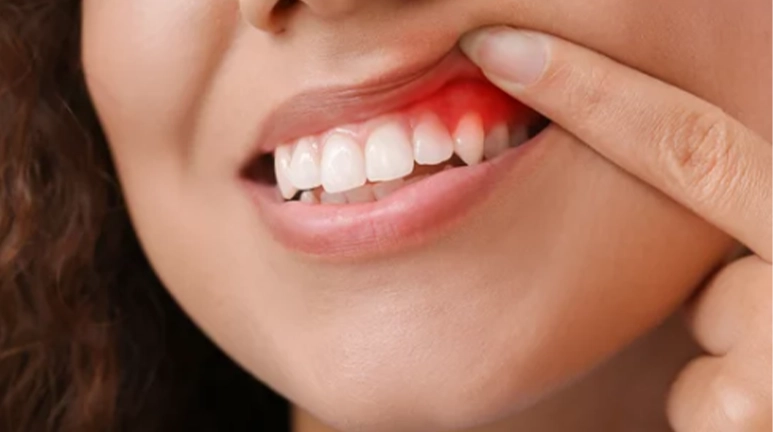Gum pain is usually a discomfort caused by gingivitis or gum disease. This pain is particularly noticeable when brushing your teeth or eating. It may be accompanied by symptoms such as redness, swelling and tenderness of the gums. If left untreated, the pain can worsen and cause more serious problems that can lead to tooth loss.
Gum pain can also sometimes be caused by trauma when flossing or chewing hard foods. To maintain the health of the gums, it is important to visit the dentist regularly and pay attention to oral hygiene. Treatment options include professional teeth cleaning, antibacterial mouthwashes and antibiotic treatment when necessary. It is possible to prevent such pain with early intervention.
How Does Gum Pain Go Away?
Gum pain is usually caused by inflammation and infections in the gums. One of the most common underlying causes of this discomfort is gum diseases, which can lead to recession and severe pain in the gums over time.
Symptoms of gingivitis include redness, swelling and tenderness of the gums. Left untreated, this inflammation can progress to the roots of the teeth and lead to tooth loss. Especially when the pain is concentrated in the back teeth, the inflammation becomes more pronounced and can cause difficulty in chewing.
The question of whether the pain in the gums affects the teeth is a frequently asked question. Yes, over time, gingivitis can also strike the tooth, which can cause pain in the tooth itself. The pressure on the gums, especially during the eruption of wisdom teeth, can exacerbate this pain. In addition, hormonal changes during pregnancy are known to cause inflammation and pain in the gums. Paying attention to gum health during pregnancy is important for the health of both mother and baby. Gingivitis can cause not only pain but also discomfort in the palate. If left untreated, this inflammation can spread and more serious oral problems can occur.
Professional teeth cleaning, antibacterial mouthwashes and, if necessary, antibiotic treatment can be applied for gum treatment. Regular oral hygiene habits such as brushing and flossing are one of the most effective methods to prevent inflammation of the gums.

Why Does Gum Pain Occur?
Gum pain occurs due to damage and inflammation of the gums. Incorrect movements during tooth brushing or consumption of hard foods can damage the gums. This can cause the onset of pain.
Gum pain that does not go away may be a sign of a serious underlying problem and a dentist should be consulted. The pain may intensify especially in the lower jaw area, where it may create a feeling of pressure.
The question of what is good for swelling of inflammation in the gums is frequently asked. In this case, antibiotic treatment and antiseptic mouthwashes are recommended. Gums that continue to swell can cause bigger problems if not treated correctly. This can lead to gum recession.
Vitamin deficiency has a direct effect on the health of the gums. When the body does not get enough vitamins, gum problems can increase and this can cause pain. Possible causes of gum pain include:
Libredent is an Ankara dental clinic that also performs treatment applications for tooth and gum problems. You can contact us for detailed information and appointments.
